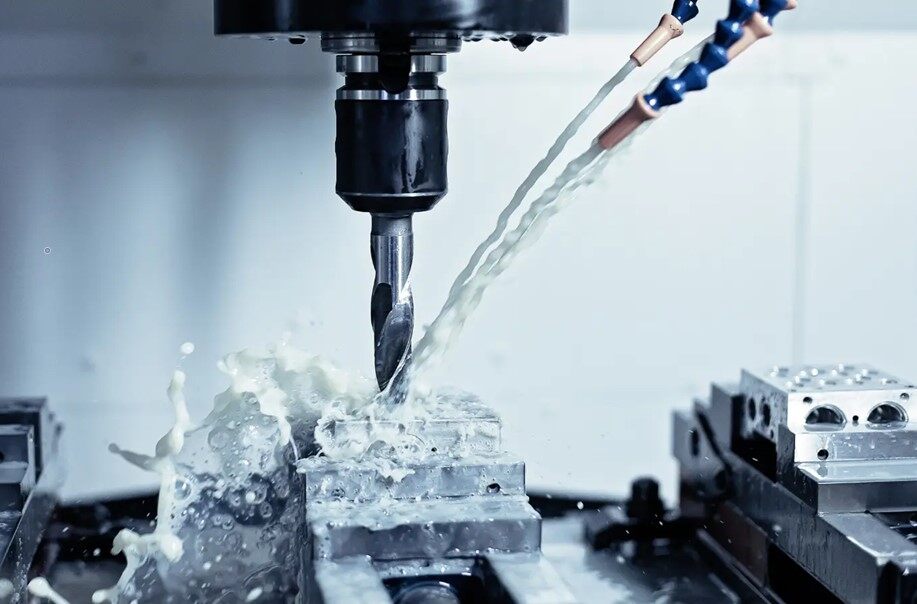
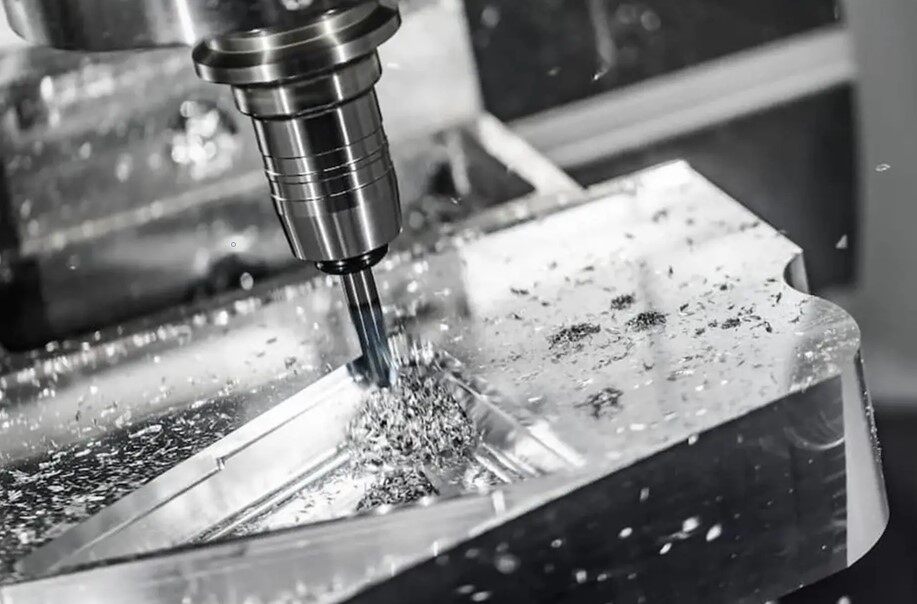
Date: 2024-07-18 ‖ Author:FuDong Machinery
CNC milling involves cutting a workpiece using computerized and multipoint cutting tools. Known for its accuracy and precision, the process is an integral part of several industries, most notable being automotive and aeronautics. Before you choose CNC milling for your project, this article about the CNC milling will hopefully be helpful to you.
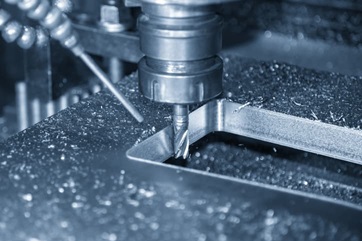
It is a computer-controlled process involving using a cutting tool to remove part of a workpiece. The basic setup involves placing the workpiece on the machine’s table while the cutting tool/s attached to the spindle rotates and moves to shape the workpiece into a finished product.
The rotation and movement of the cutting tool depend on the CNC milling machine type and level of sophistication. The process is highly versatile and compatible with various materials such as aluminum, plastics, wood, and glass.
CNC milled parts have high tolerance as milling machines can achieve a tolerance between +/- 0.001 in. to +/- 0.005 in (some machines can achieve a tolerance of +/- 0.0005 in).
CNC milling cost depends on factors such as the cost of materials, design, and machine. Below is a short analysis of the factors and their effects.
1.1 Part Design
Designing the part is very expensive. You can outsource the CAD file to a designer or make it yourself to bypass the cost. Also, you need to factor in the cost of a manufacturing engineer who will check and authenticate the part and the programmer who converts the CAD file into a CAM file. However, many CNC milling services have incorporated that into their quoting platforms.
1.2 Design Complexity
A complex product design requires a machine that can effectively mill the product. The higher the complexity, the higher the milling machine’s sophistication, and the higher the cost.
Also, a complex design will increase the time taken for production to complete, and since CNC milling services use an hourly rate, the cost will increase.
For companies that have a CNC miller, the amount of power the machine consumes will increase.
1.3 Production Volume
Large orders are less costly than small orders when you outsource to CNC milling services due to the reduction in the cost per milled item. This is based on the economies of scale. CNC milling is highly repeatable, which reduces the production time.
1.4 Type of CNC Milling Machine
There are many types of CNC millers, each with different attributes and costs. The most important factor determining the type of machine you use is the design complexity previously explained above.
CNC milling service sets the cost of milling machines at an hourly rate (sometimes with the operator’s cost). The service calculates the cost of using a milling machine from the purchasing cost and how long it should operate yearly. For example, in Europe, 3-axis machines cost around $40 per hour while 4-axis and 5-axis machines cost between $75 to $120 per hour.
However, there are situations where they can be less expensive. For example, Chinese CNC milling services such as FuDong offer 3-axis machines for $8-$10 per hour and 5-axis machines for $30 per hour.
1.5 Material
Availability, market cost, and machinability are all important properties that play a role in the cost of the material. The material cost is per block
There are two major types of CNC materials: plastic and metals. On the one hand, plastic is cheap, highly machinable, and highly available. Therefore, they have a low material cost. Examples are ABS ($17), Delrin ($27) Nylon 6 ($30). On the other hand, metals are costlier than plastics. Common examples are: Aluminum 6061 ($25), Aluminum 7075 ($80), Stainless steel 304 ($90) per block
1.6 Surface Finishing Option
Finishing options such as anodizing and powder coating help eliminate the signs of CNC milling or improve the part’s aesthetic. Nevertheless, they will also add to your CNC milling cost.
1.7 Additional Completion Costs
The cost of shipping also adds to the overall CNC milling cost. Shipping cost depends on the distance from the CNC milling service, deadline, and material weight.
The above factors play an important role in the CNC milling cost and should be deeply considered when making a budget. However, if you are still wondering about the cost and how to reduce it, you should check how much CNC machining cost calculation, speak to an expert, or get an instant quote.
On-demand CNC milling services for rapid prototypes and production parts. Get custom milled parts from various high-quality metals and plastics. Tight tolerance of 0.01 mm. Milled parts as fast as 1 day.
From 3-axis basics to intricate 5-axis projects, our precision CNC milling makes your designs come alive with unmatched accuracy and craftsmanship.
CNC milling employs multi-axis operations, such as 3, 4, and 5-axis machining, to ensure precision and intricate geometries from blocks of metal or plastic, efficiently producing complex parts.
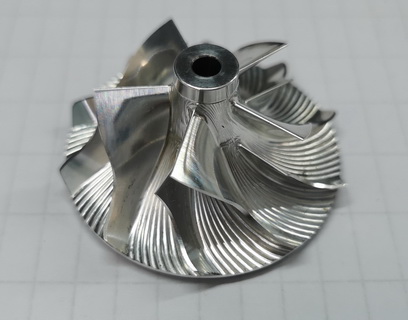
From 3-axis basics to intricate 5-axis projects, our precision CNC milling makes your designs come alive with unmatched accuracy and craftsmanship.
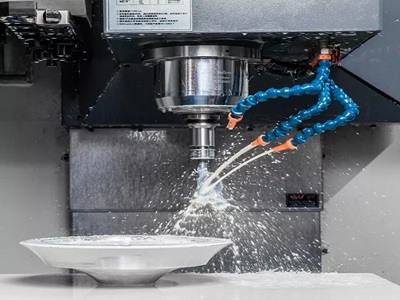
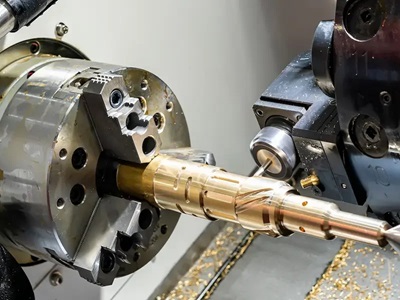
3-Axis CNC Milling 4-Axis CNC Milling
With 3-axis CNC milling, precision meets affordability. It’s your go-to for simple parts that still demand accuracy. A design, 4-axis milling can probably make it. Multi-sided machining just got a whole lot simpler.
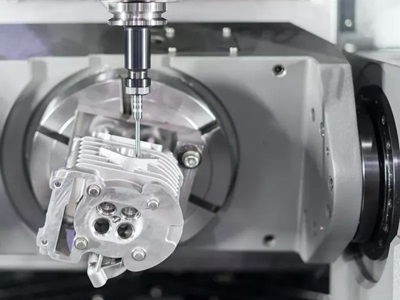 5-Axis CNC Milling
5-Axis CNC Milling
For those complex and intricate parts, 5-axis milling is the master key. Bring your most ambitious designs to life.
At FuDong, our CNC milling service offers a diverse range of materials, ensuring precision and durability. This vast selection empowers our clients with optimal choices for their unique projects, boosting their product’s quality and performance.
Frequently requested materials
| ① Steels | ② Aluminum alloys |
| 1.0037 | S235JRC+C | St37k | EN AW-1050A | 3.0255 | Al99,5 |
| 1.0038 | S235JR | St37-2 | EN AW-2007 | 3.1645 | AlCuMgPb |
| 1.0503 | C45 | EN AW-5083 | 3.3547 | AlMg4,5Mn |
| 1.0570 | S35J2 | St52-3 | EN AW-5754 | 3.3535 | AlMg3 |
| 1.1730 | C45U | EN AW-6060 | 3.3206 | AlMgSi0,5 |
| 1.2379 | EN AW-6061 | 3.3211 | AlMg1SiCu |
| 1.2842 | 90MnCrV8 | EN AW-7022 | 3.4345 | AlZnMgCu0,5 |
| 1.4301 | V2A | EN AW-7075 | 3.4365 | AlZnMgCu1,5 |
| 1.4305 | ④ Plastics |
| 1.4404 | V4A | PEEK |
| 1.7131 | 16MnCr5 | PMMA | Acrylic glass |
| 1.7225 | 42CrMo4 | POM (white/black) |
| PTFE | Teflon | |
| ③ Other metals | PVC |
| Copper | OF-Cu | 2.0040 | EN CW008A | Standard plastics |
| Brass|CuZn39Pb3 | 2.0401 | EN CW614N|Ms58 | Engineering plastics |
| Bronze | CuSn8 | High-performance plastics |
| Titanium | Ti6Al4V | 3.7165 | Fiber-reinforced plastics |
Extensive material list (incomplete)
| ① Steels | ② Aluminum alloys |
| Basic steels | 1000s: pure aluminum (> 99% aluminum) |
| Non-alloyed quality steels | 2000s: alloys with copper |
| Alloyed quality steels | 3000s: alloys with manganese |
| Non-alloyed high grade steels | EN AW-3003 | 3.0517 | AlMnCu |
| Alloyed high grade steels: tool steels | EN AW-3103 |
| Alloyed high grade steels: high speed steels | 4000s: alloys with silicon |
| Rolling bearing steels | 5000s: alloys with magnesium |
| Steels with special magnetic or physical properties | 6000s: alloys with magnesium and silicon |
| Alloyed high grade steels: stainless steels | 7000s: alloys with zinc |
| Alloyed high-grade steels: heat-resistant steels | 8000s: alloys with other elements (e.g. lithium or iron) |
| Alloyed high-grade steels: structural steels | ③ Other metals |
| Alloyed high-grade steels: machine steels | Non-alloyed and low-alloyed copper |
| Alloyed high-grade steels: container steels | Brass (copper-zinc alloys) |
| Alloyed high-grade steels: nitriding steels | Bronze (copper alloys without zinc as main alloy additive) |
| Non-alloyed titanium | |
| Titanium alloys |
Gain access to quality surface finishing for custom CNC milled parts to remove aesthetic flaws and improve the appearance of your products. We also provide rigid protection and additional resistance and strength to your parts through superior surface finishes.
| Surface | Finishes | Description | Services | Applicable Materials |
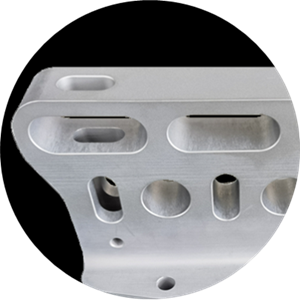 |
As Machined | Standard finish, surface roughness of 3.2μm(126μin), removes sharp edges and deburs parts cleanly. | CNC machining, Sheet metal fabrication | Metals, Plastics |
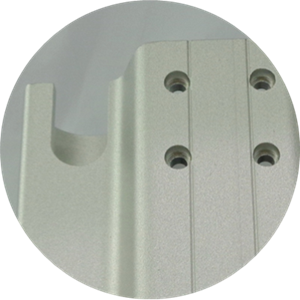 |
Sand Blasting | Powerfully propels blast media against surfaces to remove coatings and impurities. | CNC machining, Sheet metal fabrication | Metals, Plastics |
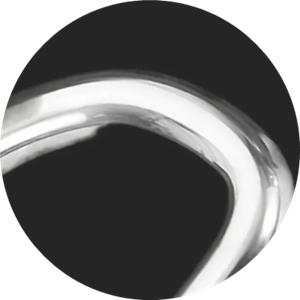 |
Tumbling | Utilizes barrel or vibratory processes with abrasives to smooth and polish the surface of parts. | CNC machining, Sheet metal fabrication | Metals, Plastics, Glass |
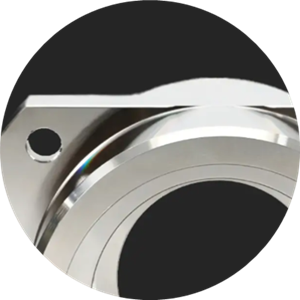 |
Electropolish | Electrochemical process that smoothens, polishes, and deburrs metal surfaces to a high gloss. | CNC machining | Stainless steel, Copper, Aluminum |
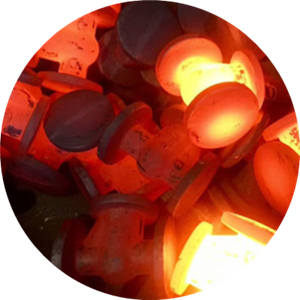 |
Heat Treatment | Alters the physical (and sometimes chemical) properties of a material to achieve desired mechanical properties | CNC machining | Metals |
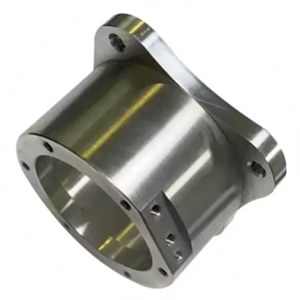 |
Alodine | Chemical treatment process providing corrosion protection and surface preparation for paint adhesion. | CNC machining, Sheet metal fabrication | Aluminum, Aerospace Alloys |
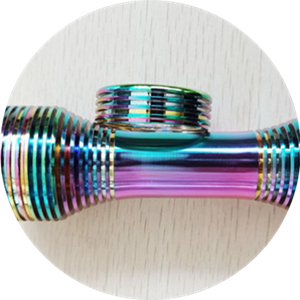 |
Anodizing | Electrochemical process that forms a durable, corrosion-resistant oxide layer on the surface of metals. | CNC Machining, Sheet metal fabrication | Aluminum |
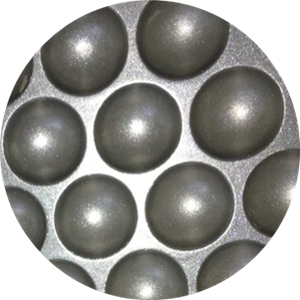 |
Teflon Coating | Applies a protective layer of PTFE to reduce friction and enhance corrosion resistance. | CNC machining, Sheet metal fabrication, Injection molding | Metals, Plastics |
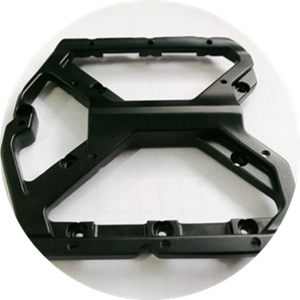 |
Black Oxidize | Chemical bath that creates a black oxide coating on metal to improve corrosion resistance. | CNC machining, Sheet metal fabrication | Steel, Iron |
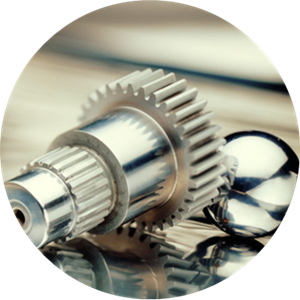 |
Electroless Plating | Deposition of a metal coating on substrates using an autocatalytic chemical process. | CNC machining, Injection molding, 3D printing | Metals, Plastics |
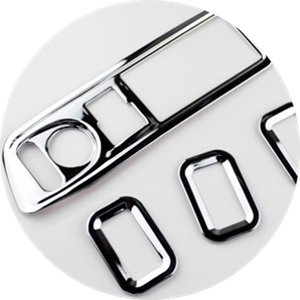 |
Electroplating | Uses electric current to reduce dissolved metal cations to form a coherent metal coating. | CNC machining, Sheet metal fabrication | Metals, Plastics |
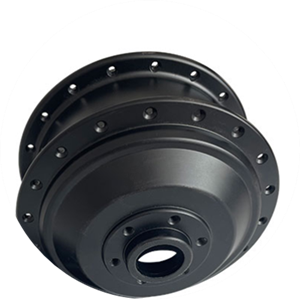 |
Painting | Application of paint for aesthetic improvements and protective coatings. | CNC machining, Sheet metal fabrication, Injection molding, 3D printing | Metals, Plastics, Wood |
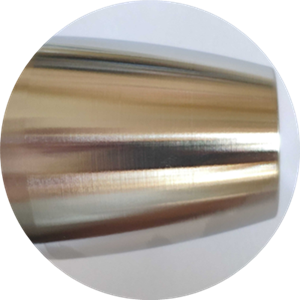 |
Passivation | Chemical treatment to enhance the corrosion resistance of metals by removing free iron from the surface. | CNC machining, Sheet metal fabrication | Stainless Steel, Other Corrosion-resistant Alloys |
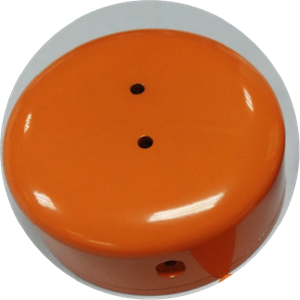 |
Powder Coating | Dry finishing process using powdered paint to provide a high-quality, durable finish. | CNC machining, Sheet metal fabrication, Injection molding | Metals, Some Plastics |
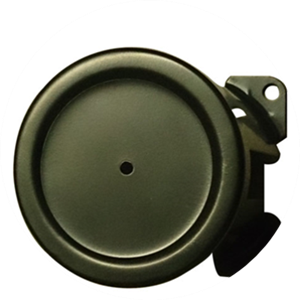 |
Electrophoresis | Coating process using charged particles suspended in a solvent, typically for uniform finishes. | CNC machining, Sheet metal fabrication | Metals, Ceramics |
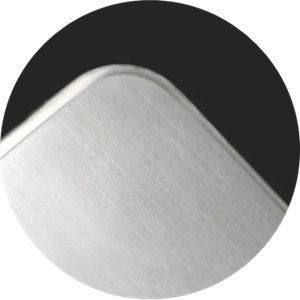 |
Brushed Finish | Mechanical polishing that produces a unidirectional satin finish. | CNC machining, Sheet metal fabrication | Metals |
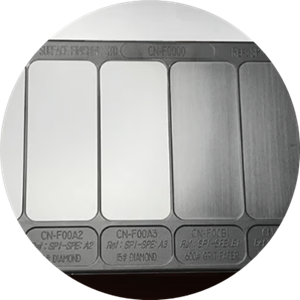 |
SPI Finish | SPI Finish standardizes surface textures on plastic parts, offer-ing finishes from high-gloss to matte, ensuring consistent aesthetics and functionality in injection molding. | Injection molding | Plastics |
FuDong ensures precision with our CNC Milling Tolerance standards. We commit to exact measurements, benefiting clients with consistent, high-quality results, optimized for search visibility. Our standard tolerances for CNC milled metals are ISO 2768-m and ISO 2768-c for plastics.
| 3-Axis | 4-Axis | 5-Axis | |
| Maximum Part Size | 1000 × 500 × 500 mm | 1000 × 500 × 500 mm | 4000 × 1500 × 600 mm |
| Minimum Part Size | 5 × 5 × 5 mm | 5 × 5 × 5 mm | 5 × 5 × 5 mm |
| General Tolerances | ±0.1 mm | ±0.05 mm | ±0.1 mm |
| Lead Time | Delivery of simple parts can be as fast as 1 day. | 5 business days for most projects. | 5 business days for most projects. |
| Recommended Size | |
| Radii | Internal radii should be at least 1/3 of the cavity depth. Use larger radii whenever possible. |
| Threads and Tapped Holes |
Diameter Φ 1.5-5 mm, depth: 3 times the diameter. ‖Diameter Φ 5 mm or larger, depth: 4-6 times the diameter. FuDong can produce threads of any specification and size as required by the customer. |
| Minimum Wall Thickness | or metals: 0.8 mm; For plastics: 1.5 mm. Thicker walls ensure better structural integrity. |
| Text |
CNC Milling: Minimum width of 0.5 mm and depth of 0.1 mm. ‖FuDong can create standard text via CNC engraving or laser engraving as per customer requirements. |
| Holes | Minimum diameter of 1 mm. Hole depth should not exceed 4 times the diameter for best results. |
CNC milling is a precise manufacturing process that involves removing material from a workpiece using rotating cutting tools. The process begins with a digital design, typically created in CAD software. This design is then converted into a CNC program, which dictates the movements of the milling machine.
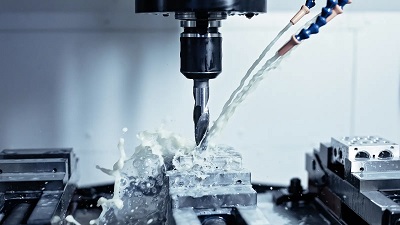
The workpiece is securely fastened to the machine’s table, and the cutting tool, mounted on a spindle, rotates at high speeds. The machine follows the programmed path, making precise cuts to shape the material into the desired form. CNC milling can create complex shapes and features, such as slots, holes, and contours, with high accuracy.
Three-axis milling moves the tool along the X, Y, and Z axes. Four-axis milling adds rotation around one axis, while five-axis milling allows rotation around two axes, enabling more intricate designs. This versatility makes CNC milling essential in various industries, from aerospace to medical devices.
CNC milling offers numerous advantages for manufacturing:
CNC milling is widely used to produce a variety of precision parts and components:
Accelerate product development with our rapid machining services. We offer fast turnaround times and specialize in quick production of high-quality prototypes and mold tooling, aiding your design verification process.
Whether you need small batches or large-scale production, we can offer you both. With stringent tolerance controls and comprehensive capabilities, we adapt to your volume requirements without compromising on quality.
At FuDong, we have a variety of CNC milling machines to meet diverse manufacturing needs, includes 3-axis, 4-axis, and 5-axis CNC milling machines.
The 3-axis machines are perfect for simple operations, handling basic cutting tasks along the X, Y, and Z axes.
Our 4-axis machines add an extra rotational axis, allowing for more complex geometries and more efficient production of parts with features that require continuous machining around a fourth axis.
Finally, our advanced 5-axis CNC milling machines offer the highest level of precision and versatility, enabling the creation of intricate parts with complex shapes and angles.
These machines are capable of machining in five different axes simultaneously, reducing the need for multiple setups and ensuring exceptional accuracy and quality in every component we produce.
CNC milling begins with a design drawing of the part. The machine then precisely removes the material, transforming your drawing idea into a machined part within reach. This cutting can be done from different angles using machines with 3, 4 or 5 moving parts called axes.
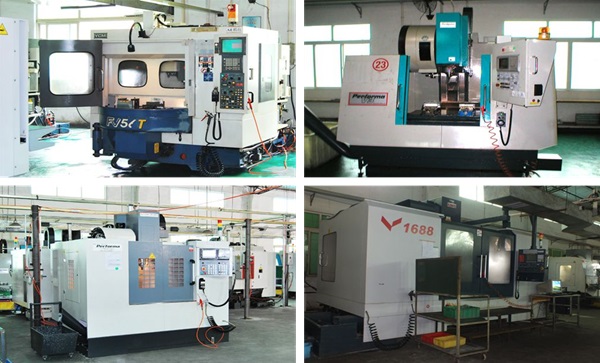
FuDong’s Factory CNC Workshop
At FuDong, our own CNC machining factories are located in Shenzhen and Dongguan, adjacent to Hong Kong. Not only do we have nearly 100 CNC machines, but we also have grinders for smoothing surfaces, wire cutters for precise cuts, and EDM machines for detailed shapes. This variety allows us to tackle complex designs that produce unique CNC machined parts with specific requirements. Our skilled machinists work with exceptional accuracy, achieving tolerances as precise as 0.01mm. This level of detail is crucial for components that must fit perfectly into larger assemblies.
We also use automated production lines. These are setups where machines work together smoothly and quickly, which helps us produce large quantities faster and reduces the chance of errors. This efficiency means we can deliver quality machined parts quickly to meet our clients’ needs, keeping projects on schedule.
CNC Machining for Various Industries
FuDong’s CNC machining services cater to a wide range of industries, from automotive to aerospace, ensuring that each sector’s unique requirements are met with precision.
Contact us and upload a CAD file as soon as possible and you will receive instantly quotes, lead time, and DFM details for your CNC components. Specializing in CNC machining for metals and plastics, we provide adaptive production and shipping solutions to align with your product development needs.
Let’s Get Started.
WelCome To Our FuDong-Machining,We Provide Integrated comprehensive services.
© 2023 Fudong Machinery.